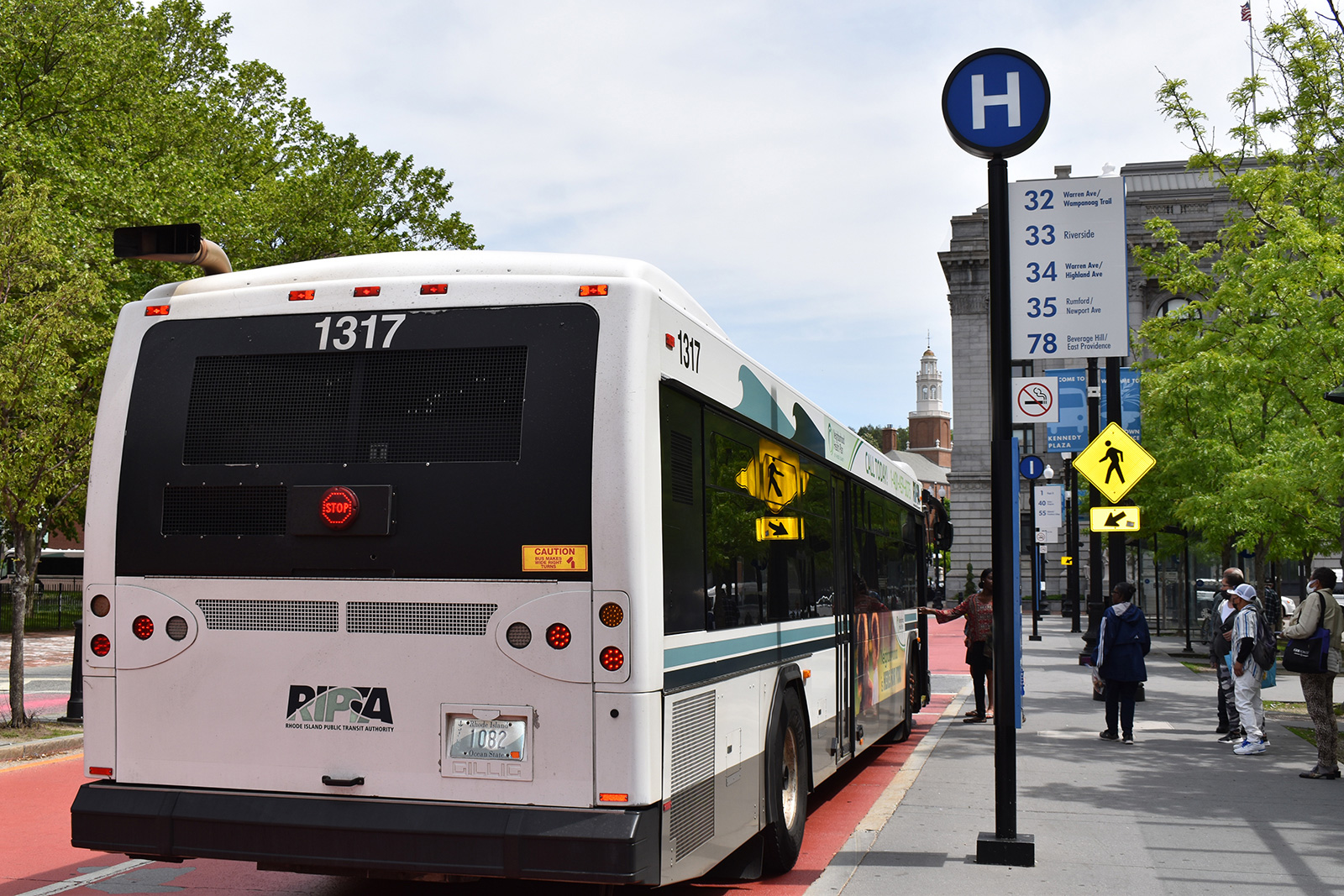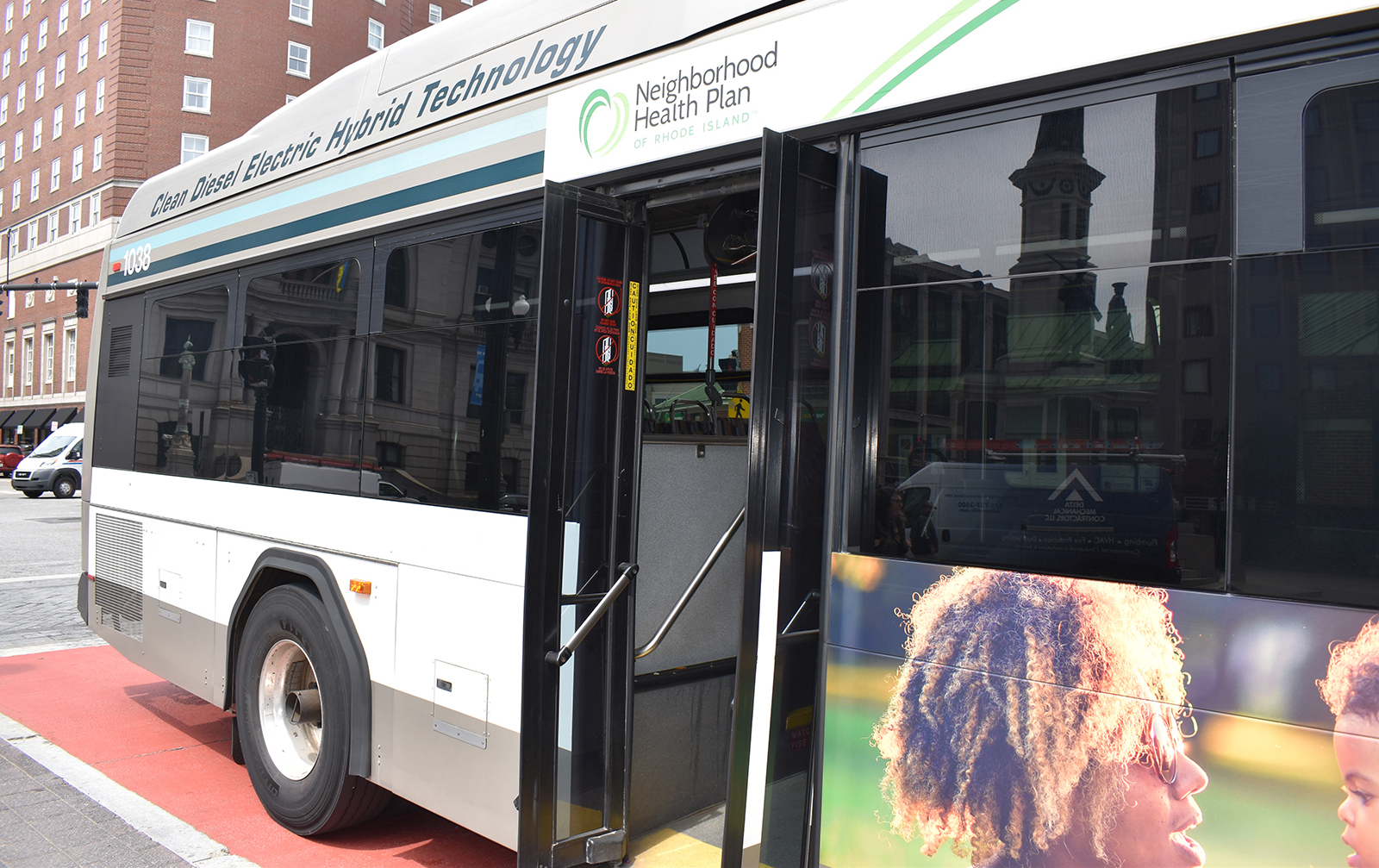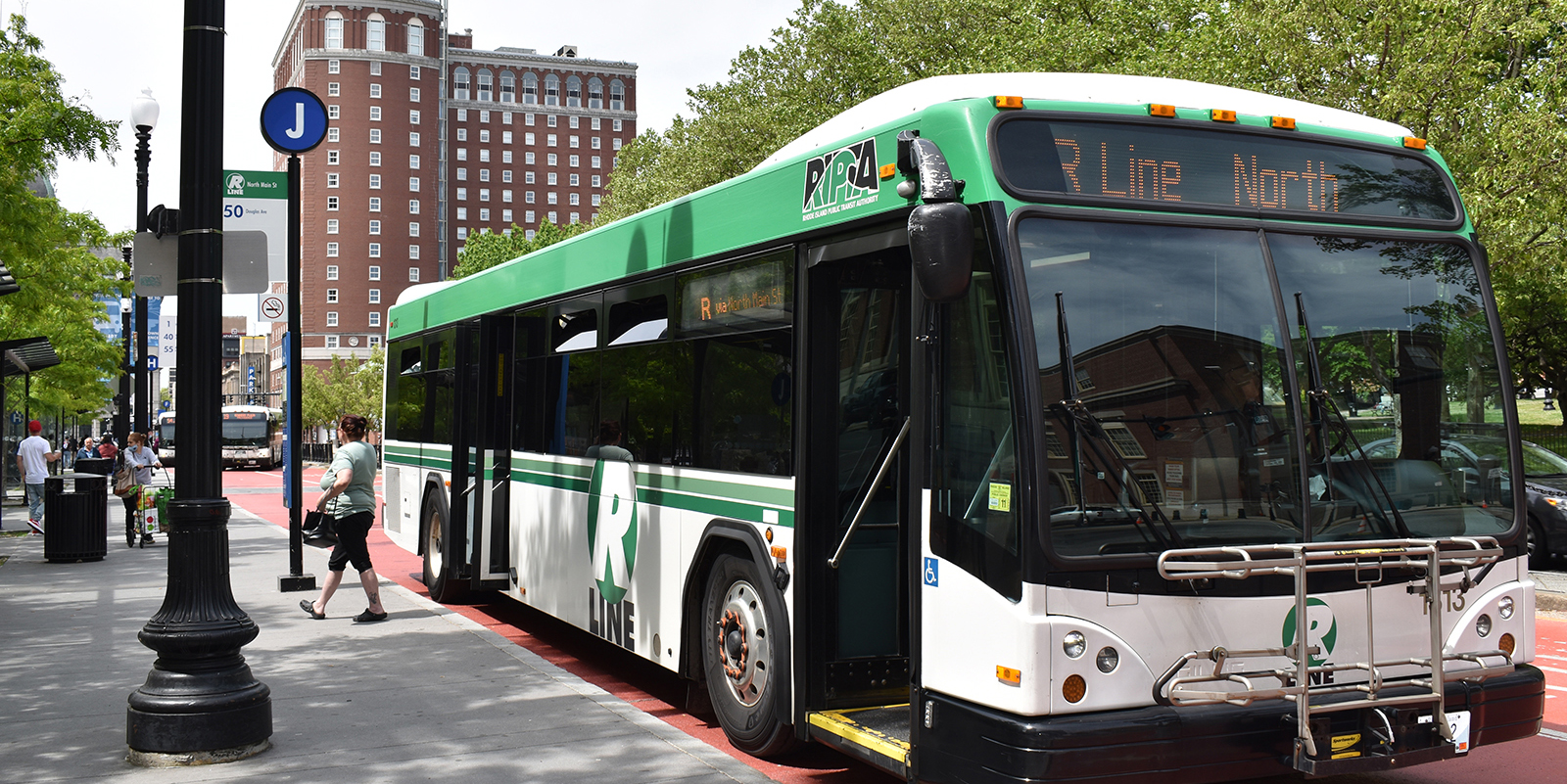Dangerous Intersection: RIDOT Hides Crash Data from Public
September 25, 2023
PROVIDENCE — Data obtained from accidents around the state has helped improve street lighting in Burrillville, implement the ongoing Washington Bridge project, and investigate why cars kept crashing into a property in Narragansett.
Crash data — where they happen, how, and who is involved — is often reviewed by Rhode Island Department of Transportation staffers and consultants when making changes to the state’s roads or responding to safety issues.
But requests for this information from the public, including residents, researchers, and advocates, are routinely denied, even though RIDOT staff have considered sharing the information with the public in the past.
According to the attorney general’s office, it’s up to RIDOT whether to release the information to the public. Although the AG’s office recently sided with RIDOT in denying a complaint claiming the information should be public, the attorney general stated: “We strongly encourage DOT to consider whether it may be in the public interest to disclose the requested information.”
“There’s a clear public interest in disclosing this data and allowing a better understanding of accidents occurring across Rhode Island,” said Justin Silverman, executive director of the New England First Amendment Coalition (NEFAC). “It’s a public interest that many other states already recognize.”
‘Crash data is not a public record’
Since 2019, RIDOT has denied 17 individuals or groups, including ecoRI News, that requested crash data on the basis the information was not public record, according to documents provided to ecoRI News via a records request. Although the crash data itself is not considered public record by RIDOT, the requests for the data and the agency’s responses to those requests are.
Many of the groups and individuals that asked for the information hoped to use the data for projects that attempted to evaluate or improve safety.
One requester, a master’s student from a Kansas university, was writing a research paper about how roundabouts may improve safety after he encountered traffic circles during a visit to Rhode Island.
“I had the pleasure of visiting Warwick in 2019 and was very impressed with the roundabout network downtown,” the student wrote in a note requesting crash data for some roundabout locations.
The request was denied. “Crash data is not a public record,” RIDOT stated in its response. The data fell under “any records that would not be available by law or rule of court to an opposing party in litigation” and information that was “required to be kept confidential by federal law or regulation or state law or rule of court,” according to the agency.
Professors from Toronto and Michigan requested “de-identifiable” crash data with date, time, and location as part of a study “aiming to improve traffic safety, including studying the impact of drive assistance technologies.” The request was denied for the same reason.
A Seattle-based company that uses crash data from around the United States “to build web services that help drivers navigate roads more safely and prevent future crashes,” asked for five years of statewide crash data including location information. It was denied, too.
In a statement to ecoRI News, RIDOT spokesperson Charles St. Martin said the agency plans to continue its policy of not releasing crash data.
Denial, appeal, response
When Providence Streets Coalition member Jamie Pahigian’s request for the data was denied, he chose to file a complaint with the attorney general, which was first reported in The Providence Journal.
Pahigian said he requested data on crashes that involved pedestrians and people using bicycles, scooters, wheelchairs, and other personal mobility devices in Providence from 2007 to 2022 to help make a map of the city and help identify problem areas for walkers or people using such devices.
“Our thinking is if people are making decisions about infrastructure changes, that should be informed by where the risks are and where the potential for greater benefit is from,” he told ecoRI News after he filed the complaint. “If we’re going to spend money to reconfigure an intersection, we should consider what the pedestrian experience is now.”
Ultimately, the coalition was able to get the data from the city, but Pahigian argued that if someone wanted to make a similar map of the entire state, it would take extensive research.
“Even though all of that data is reported to RIDOT,” he said, “we would have to go to like 39 different towns and cities and press individually, which is unfeasible.”
Pahigian argued in his complaint that RIDOT should release the information because he was not using it in a lawsuit and because the same information was available to the public from police departments.
But the attorney general found RIDOT did not violate Rhode Island’s Access to Public Records Act (APRA), under an exemption which makes “non-public any records that would not be available by law to an opposing party during litigation and records required to be kept confidential.”
“We acknowledge the Complainant’s argument that RIDOT has discretion to produce the subject records and that other states have seemingly produced records similar to those that he is seeking,” according to the attorney general office’s response to Pahigian’s complaint.
The response did not comment on the viability of RIDOT’s argument that the records were required to be kept private because of a law or the courts, and instead encouraged the agency to determine whether it may be in the public interest to disclose the requested information in the future.
“Even if the crash records can be withheld under APRA, that doesn’t mean they must be,” Silverman said. “RIDOT would serve the public well by heeding the AG’s advice and reconsidering its secrecy.”
Although Pahigian’s complaint was not resolved with a trove of crash data, he said he will try to advocate for legislation that mandates the information be public.
“The Attorney General’s ruling affirms RIDOT’s contention that the public currently has no legal right to know where traffic accidents and injuries are most common in Rhode Island,” he wrote in a statement to ecoRI News. “The only viable path to putting these records in the public domain would be legislation to bring Rhode Island up to the standards of transparency seen in states like Louisiana and Mississippi, which are actually far more progressive than [Rhode Island] on this issue.”
‘Attached is the crash data’
In a few cases, RIDOT has released crash data to outside entities.
When the Rhode Island Public Transit Authority asked for crash data for grant application purposes, the authority’s CEO, Scott Avedisian, had to sign a confidentiality agreement with RIDOT, according to a signed agreement reviewed by ecoRI News via a public records request.
RIDOT shared some crash data with the Hope-Valley Wyoming Fire District when the chief there had reached out expressing concerns about fatal crashes in a particular area of town, according to emails reviewed by ecoRI News.
The state department in at least one instance also shared crash data with an engineering consulting group for a private project.
The engineering firm had worked with RIDOT on several traffic study projects and was given crash data for those projects. In February 2022, one of its consultants asked for “3 years of accidents on the Factory Street corridor and on the Border St corridor” for a “private development project in West Warwick,” according to emails obtained via a public records request.
“Attached is the crash data,” a RIDOT staff member replied five days later, according to the documents.
The same consultant has also asked for three years of accidents at intersections near another private development project in December 2021, this time in East Providence, according to emails between the consultant and staff.
The emails show a RIDOT staff member asking someone to help the consultant with the request but there isn’t a record that the consultant received the information.
In a different email exchange, a project engineer from a different consulting group that had access to crash data when working on RIDOT projects asked for the information for areas around a proposed development in Lincoln but was told by staff to file a formal public records request for the data.
RIDOT spokesperson St. Martin did not respond to a question about whether it was agency policy to give crash information to consultants for projects that do not involve RIDOT directly.
RIDOT had at one point considered creating a public dashboard that shared some of this information, according to emails obtained by ecoRI News through a public records request.
The agency had presented a nearly finished dashboard at a Traffic Safety Coalition meeting in January 2021, according to Liza Burkin, lead organizer for the Providence Street Coalition, who had been excited about the prospect of the information becoming public.
“They presented like a, I would say, maybe like 85% complete dashboard,” Burkin recalled. “And it was absolutely wonderful, and I was thrilled to see it so near completion.”
After the presentation, Burkin kept checking in with RIDOT staff about the dashboard but heard little back.
“Due to COVID, this effort to complete was put on temp hold and has not gone live. However, this is back on the radar for review/discussion,” a RIDOT staff member wrote in July 2021.
“Just checking in once more on the status of a publicly accessible crash data website?” Burkin wrote in an email to RIDOT staff in April 2022. “Community members in Providence ask me about it all the time — it’s frustrating not to be able to offer them this resource, especially when it was so close to completion in January 2021. Please advise?”
St. Martin did not address why the agency has not continued with the project.
Other states share information
Other states have no problem giving the public access to information on where crashes are happening.
Jonathan Hall, a professor from the University of Toronto whose request for statewide crash data from Rhode Island was denied, said he requested data from the other 49 states and got results from more than 30.
Hall said states had a variety of systems for sharing the data, from publishing it online to requiring Hall to sign a contract before accessing the information. Because Hall was asking for partial vehicle identification numbers, to get the make and model of the cars involved in the crashes, one state also asked for $800,000. “Which I don’t have,” Hall said.
The data collected by Hall will be used to evaluate the safety of driving-assistance technologies, like lane assistance and automatic braking.
Massachusetts was one of the states that gave Hall direct access to the data. The state’s Department of Transportation (MassDOT) has a portal that allows users to request and access a vast amount of statewide crash data.
“I can tell you what we do in our state, other states look in horror,” said Bonnie Polin, MassDOT manager of Highway Safety Programs. “They don’t have the ability to release information at all because of public records.”
The fear of being sued prevents some states from releasing the data, but not Massachusetts, she explained.
“The reason we decided to create the portal was because we get calls all the time,” Polin said. “I think maybe last time we recounted how many times we got calls and emails, requests, we had over 3,000 a year.”
Those requests came from journalists, traffic engineers, or even residents who were dealing with tickets in traffic court.
Now, the information can be accessed through MassDOT’s IMPACT portal. The website’s data visualization tool has 170 different criteria for searches.
“If you were interested to find out how many crashes in [a town in Massachusetts] involved a bus making a right turn, with a bicyclist, on a Tuesday, you’d be able to find those crashes,” Polin said. “You can query anything.”
MassDOT also uses the software to help with its own projects. The department has a little less than $40 million a year to spend on safety projects through the Highway Safety Improvement Program.
“It’s all data-driven, so it’s based on this,” said Polin, referring to IMPACT. “It definitely benefits us at [MassDOT], but it also benefits everyone else.”
Burkin, of the Providence Street Coalition, who got her master’s degree in urban planning in Massachusetts and used the MassDOT tool frequently, said she would love to see RIDOT adopt something similar.
“It was built,” she said, referring to the abandoned dashboard. “We’ve been looking for crash data. We need crash data as advocates and trying to understand where the problem spots are.”
In his statement responding to this story, St. Martin, the RIDOT spokesperson, wrote: “At this time RIDOT will continue to maintain its longstanding policy to follow federal law of not releasing crash data, but using it for its intended purpose to have RIDOT and our consultants propose improvements that make roads safer.”




Cut the nonsense, RIDOT. If it happens on a public road it’s public data.
As usual, good reporting. RIDOT is not much of an agency for transparency – e.g. they are working on a carbon reduction strategy without public input, they are working on a gas tax replacement without public input, they came up with that ludicrous “multi-hub” tunnel-under-Kennedy-Plaza scheme that was widely rejected because they had no public input, there is no public input into what competitive Federal grants they ask for (they used to include bikes, no more) and they used to have Director’s Roundtables with community groups – but no more with current administration. All this is a reason I testified against confirming the current Director. As for the crash date, I’ll bring up the issue at the next Traffic Safety Coaltion meeting
OK. What are they hiding? Are they hiding that they haven’t compiled the data or that it’s disorganized? This is yet another example of RI DOT’s poor leadership. Yes.
I hope the AG pursues the data. If they aren’t forthcoming, then maybe the Governor should publicly request it. Gov. McKee needs some positive press. He needs to show his independence from the old Rhode Island ways of doing things.
Look up your state senator and representative’s email addresses…write them and COPY the governor. If you only write the governor and no one else – he wouldn’t pay attention.